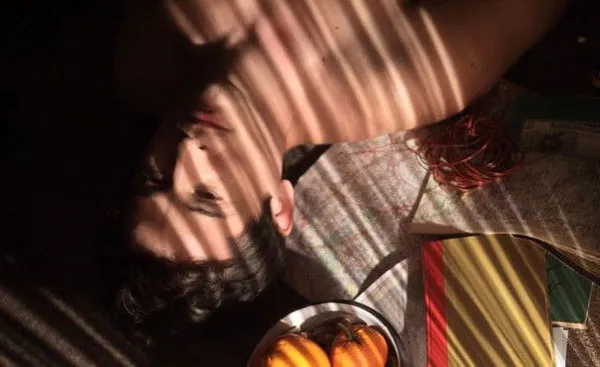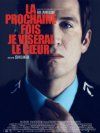Eye For Film >> Movies >> Next Time I’ll Aim For The Heart (2014) Film Review
Next Time I’ll Aim For The Heart
Reviewed by: Anne-Katrin Titze

Cédric Anger returns to the Seventies and to real-life murder cases with his two latest movies. In one as screenwriter for André Téchiné's casino family thriller In The Name Of My Daughter (L’Homme Qu’on Aimait Trop) and directing the other, Next Time I’ll Aim For The Heart (La Prochaine Fois Je Viserai Le Coeur) based on Yvan Stefanovitch's book. In both, Guillaume Canet is the male lead and in both, possibly aided by the costumes he is wearing and the period haircuts, he looks strikingly like François Truffaut, which makes for an interesting obstacle to overcome in performance. And overcome it he does.
In the Oise region of France, during the winter 1978 to 1979, a serial killer by the name Alain Lamare was on the loose. His victims were young women, strangers he happened upon while driving around the small towns on frosty rural nights or afternoons off from his job as gendarme. Canet's character is based on him and renamed Franck Neuhart, a German name, phonetically signaling both a new heart and new hardness. Neuhardt is also the name of the protagonist in a novel by Emmanuel Bove from 1928 about an unexpected love story.

Anger bathes his picture in shades of petrol blue. With the help of cinematographer Thomas Hardmeier, he creates images of such striking loveliness in nature that you sometimes all but forget the grisly plot. The rime lacing the fields or the peaceful aura of early winter sunsets transcend function as setting. The composition challenges the audience when beauty competes with crime. Hardmeier, who recently gave Jalil Lespert's Yves Saint Laurent that special glow, manages to infuse images with longing by finding the exact shade of light that we tend to remember from childhood. It is the light of innocence lost.
We get to know Neuhart very well but it happens slowly in measured psychological episodes. Canet is fantastic in opening up more and more of the secret chambers in this frightening man's heart. The mood is impeccable. Early morning fog, iced-over ponds, deer congregating for a nightly get together in the forest - the landscape exists just as the spectator does, powerless to interfere.
We do not see Canet's face for a very long time. Instead we get to know Neuhart through the objects surrounding him where he lives - a David Hamilton poster of a beautiful young girl on the wall and a half-eaten banana with a bullet stuck in the flesh, propped up on the table like a puppet without a head.
Who is this man who sleeps in a military tent in a messy room inside his apartment, where each corner seems to be from a different world? Is he the one in the car who follows the two teenage girls chatting on motor scooters on a country road at night? He flagellates himself with branches and wraps barbed wire around his arm until he bleeds. "I am a killer, I despise recklessness," he writes in a letter to the gendarmes. Invincible, he believes himself to be a mastermind, the outsider inside the system. More tortured by his disavowed possible sexual identity than by brutal acts of murder at close range, Neuhart belongs to the Norman Bates dynasty of silver screen serial killers.
Guillaume Canet's features are filmed in a way that makes them almost flat, which, when combined with the gendarme's behavioral disorders, give Neuhart the eerie quality of a man who had his soul photo-shopped out of him. Sophie (Ana Girardot), a young woman who does his cleaning and ironing, is so wrapped up in her own problems that she believes she is in love with Franck. He has a little brother and parents and colleagues and nobody seems to realise his secret life.
The film is most chilling when his behavior is off just enough to alarm those around him and normal enough to stay within the boundaries, without any consequences. Sitting at the counter of the local bistro, Neuhart starts to angrily peel several of the hard-boiled eggs on display there, without eating them, then downs his beer in one gulp, orders a second without touching it, pays for the eggs and beers, and leaves. The movements in this unorthodox sequence are edited by Julien Leloup like a ballet and Grégoire Hetzel's score is brilliant, matching the vigor of his work with Mathieu Amalric on The Blue Room.
One of the victims is played by Alice de Lencquesaing (Best Actress First Time Fest winner for Amélie van Elmbt's Head First), and her disbelief of what is happening replicates ours, despite all we know.
Reviewed on: 01 Mar 2015

















